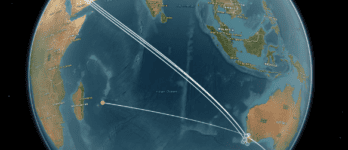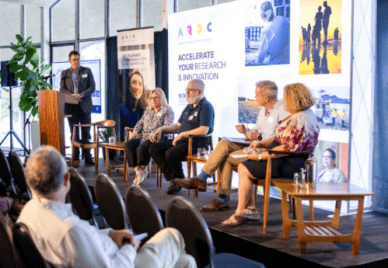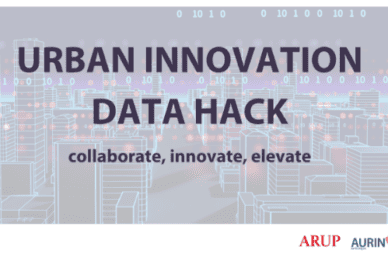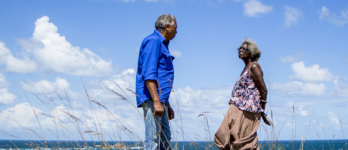
The inaugural symposium for the HASS Research Data Commons and Indigenous Research Capability was held at the University of Melbourne/Naarm on 2 and 3 of February 2023.
The symposium gathered research infrastructure and data experts in the field of humanities, arts, and social sciences (HASS) and Indigenous data to discuss and showcase their projects. The purpose of the symposium was to promote collaboration, exchange of ideas and best practices, and to encourage the development of new techniques and technologies for advancing the research data commons.
For all those who attended, we’re keen to hear your feedback on the symposium. Please complete the survey.
Gooreng Gooreng man Grant Sarra moderated the symposium, which was attended by over 80 people from various sectors including Aboriginal community-controlled organisations, government, academia, learned academies, and research infrastructure facilities. The event was held both in person and online.
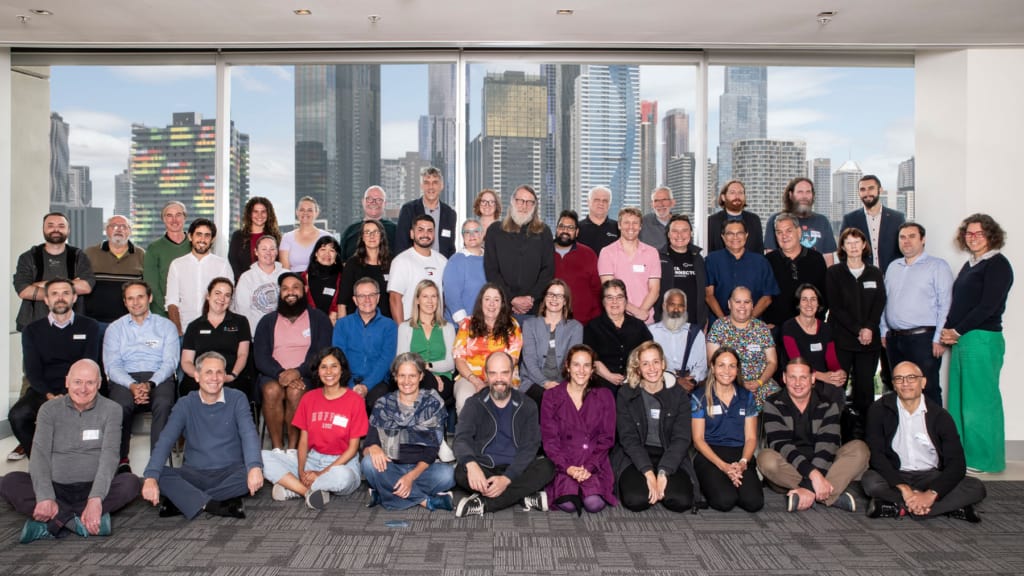
Watch the Symposium Recordings and Download the Slides
Day 1 of the Symposium – watch the video and download the slides.
Day 2 of the Symposium – watch the video and download the slides.
Overview of the Symposium
Introductions from the Learned Academies
Kylie Brass shared the agenda for the Australian Academy of the Humanities and its role in influencing policy, research and supporting early and mid-career researchers.
Isabel Ceron from the Academy of the Social Sciences in Australia described the decadal plan for social science research infrastructure for 2023-2033, which is underway this year. It will share the sector consensus on social science research infrastructure and invites technical experts to contribute to the plan. To learn more, join the LinkedIn group.
Introducing the HASS Community Data Lab
The new HASS Community Data Lab is part of our HASS Research Data Commons and Indigenous Research Capability Program. The HASS Community Data Lab will share tools and datasets for collaborative HASS research projects that use data from archives, libraries and collections. Learn more about the project.
The Gazetteer of Historic Australian Places
Ian McCrabb, Systemik Solutions, presented the new HASS RDC integration project, the Gazetteer of Historic Australian Places (GHAP). Developed from the Time Layered Cultural Map of Australia, GHAP is a standalone platform that provides a curated list of placenames and their geolocations directly accessible via a website or API.
Users of GHAP can research information about places in Australia and contribute their own layers of cultural and historical information. GHAP is designed be a long-lived, robust, portable and sustainable infrastructure tailored to the needs of the HASS Research Data Commons and Indigenous Research Capability projects.
Modernising the Online Heritage Research Management (OHRM) Tool and its Cultural Assets
Associate Professor Nick Thieberger, University of Melbourne, presented another HASS RDC integration project, which aims to rescue cultural data stored in a discontinued database, OHRM. The data from OHRM was rescued, but now it needs to be retrieved from storage so it can be used once more. Some collections being rescued include the Encyclopaedia of Australian Science and Innovation, Find and Connect, Childhood, Tradition and Change, The Australian Women’s Register, and PolyMuse.
With the goal of ensuring the longevity of existing data, Nick and colleagues are working to rescue the 1000 projects that used OHRM and transfer them to Describo, a robust data description platform.
Language Data Commons of Australia
The team discussed the overall vision and progress of the Language Data Commons of Australia (LDaCA) and Australian Text Analytics Project (ATAP), along with the technical and social architecture of the platforms. They also discussed integration and use cases and working with Aboriginal and Torres Strait Islander communities.
Simon Musgrave shared that over 400 people participated in ATAP workshops on text analysis last year, showing the keen interest in data-driven humanities research.
Speakers for the LDaCA came from the University of Queensland:
- Prof Michael Haugh
- Dr Peter Sefton
- Robert McLellan
- Dr Simon Musgrave.
Learn more about the Language Data Commons of Australia
Integrated Research Infrastructure for the Social Sciences (IRISS)
IRISS aims to improve the capacity of researchers to access, preserve and disseminate quantitative and qualitative social sciences data sources and will drive the development of systems and tools for capturing new and emerging real-time – or near real-time – data.
Topics covered in the presentations included:
Day 1:
- Conceptual, methodological and practical issues in spatial data integration – designing the Integrated Research Infrastructure for Social Sciences (IRISS) GeoSocial System, presented by Prof Wojtek Tomaszewski, University of Queensland
- IRISS GeoSocial technical design and research applications, presented by Michael Rigby, AURIN
Day 2:
- IRISS services for sensitive data environments, presented by Raj Samarage, University of Melbourne
- Metadata reuse for survey data collection and analysis (IRISS), presented by Adam Zammit, Australian Consortium for Social and Political Research Incorporated (ACSPRI), and Steve McEachern, Australian Data Archive, Australian National University.
- Data risk assessment in the management of sensitive data (IRISS), presented by Ryan Perry, Australian Data Archive, and Steve McEachern
Learn more about the Integrated Research Infrastructure for the Social Sciences (IRISS).
Improving Indigenous Research Capability (IIRC)
Levi Murray and Kristen Smith from the Indigenous Data Network at the University of Melbourne presented updates on the social architecture of the Improving Indigenous Research Capability (IIRC) program.
Levi and Kristen discussed the challenges surrounding Indigenous data – it exists in a wide variety of formats and contexts, and much of it is scattered and inadequately catalogued.
Sandra Silcot and Len Smith from the Indigenous Data Network, and Nicholas Car from Kurrawong AI, discussed the overall technical approach and geospatial capability. They shared that while day to day the team does the technical work of implementing the systems and models, everything they do is suffused with issues of Indigenous data governance and engagement.
Learn more about Improving Indigenous Research Capability.
Symposium Photo Gallery
Here is a selection of photos from the symposium (credit: Anthony McKee / ARDC):
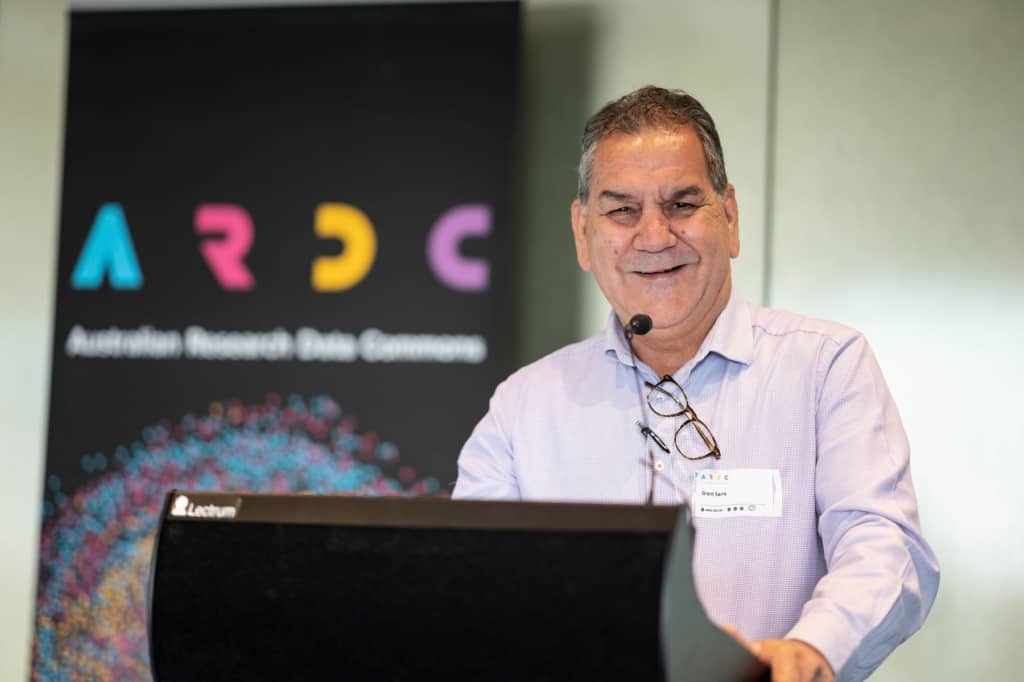
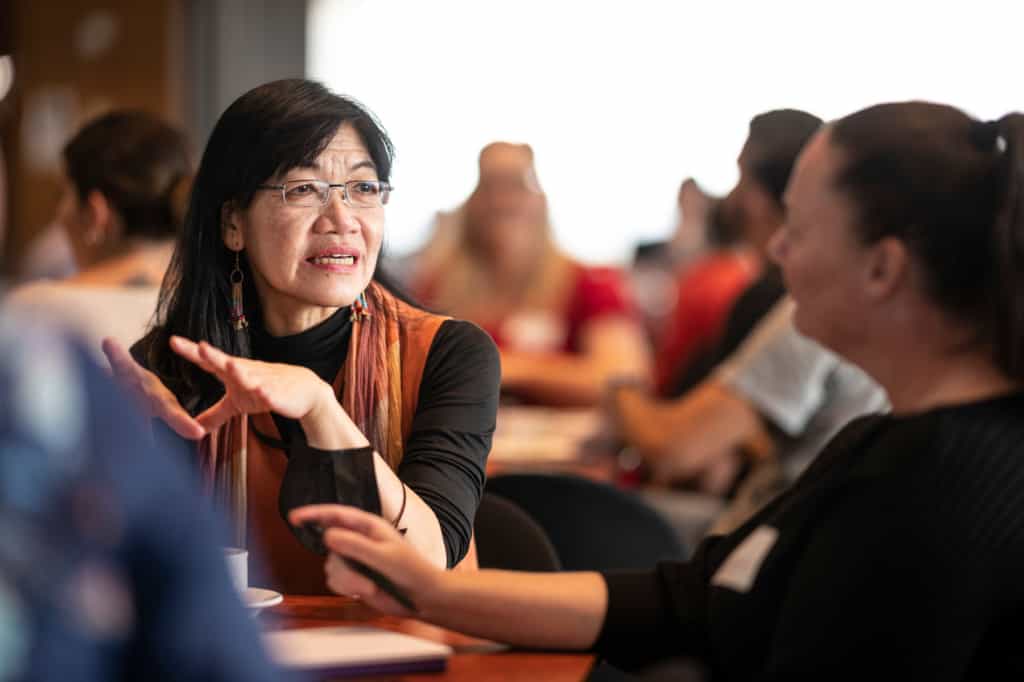
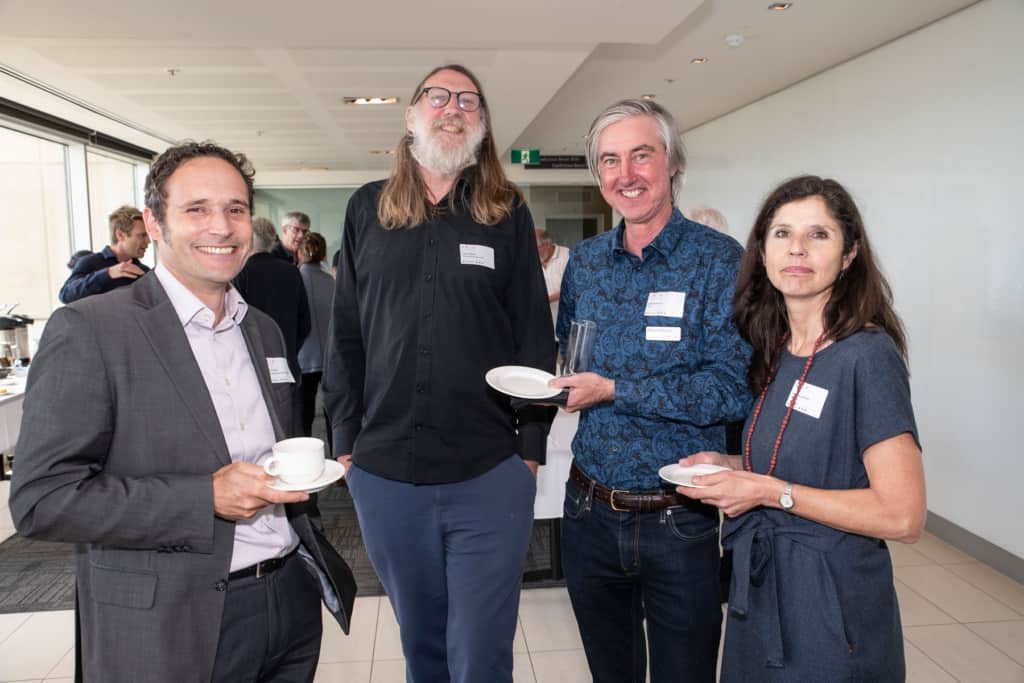
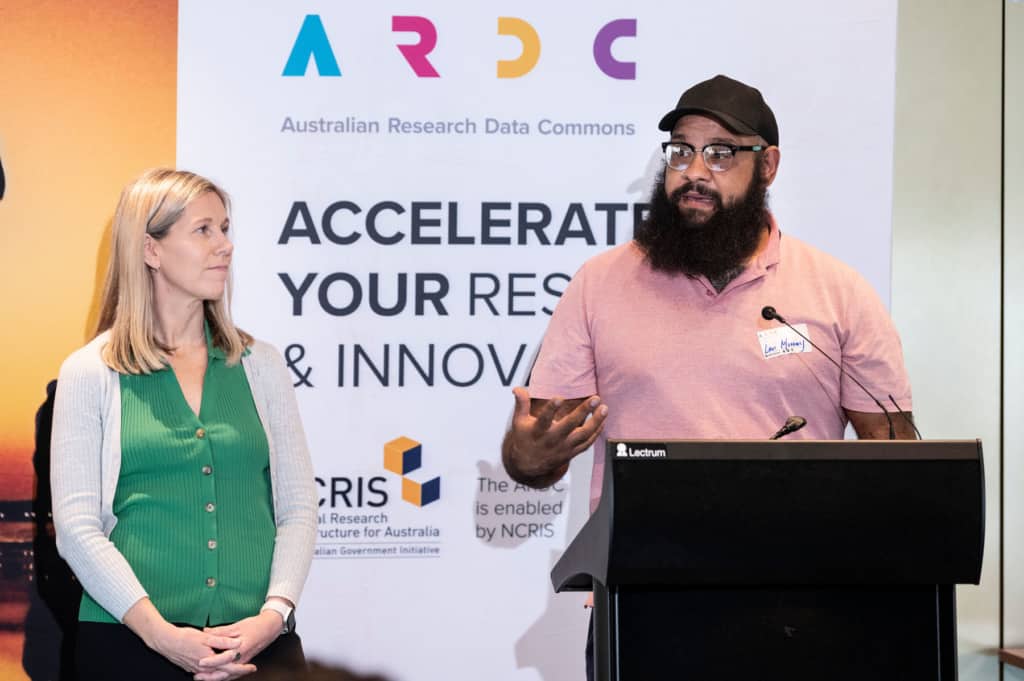
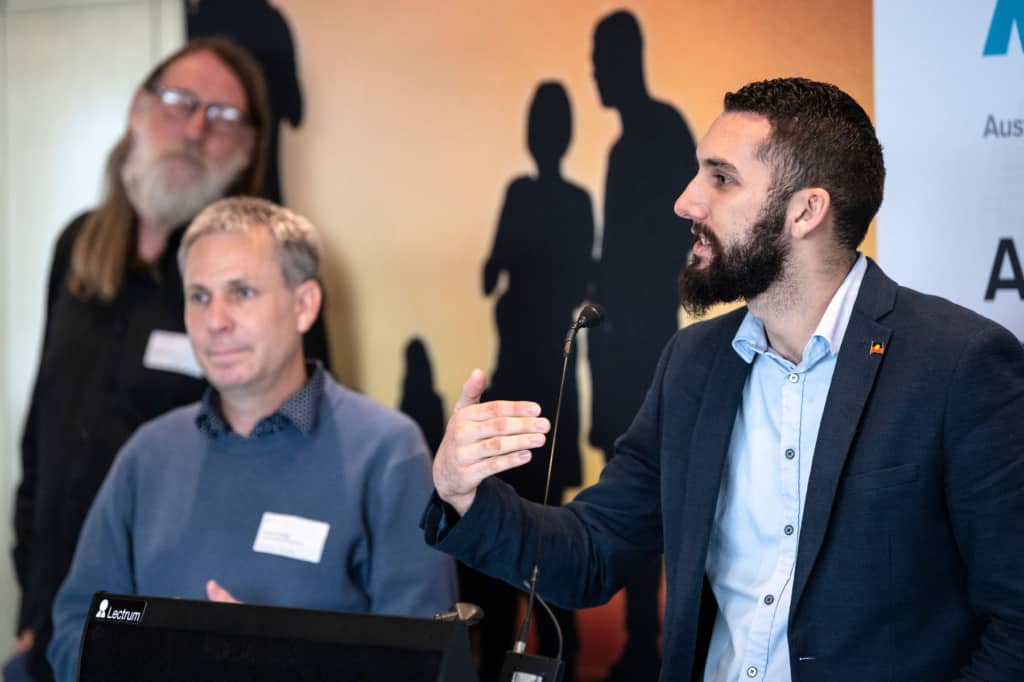
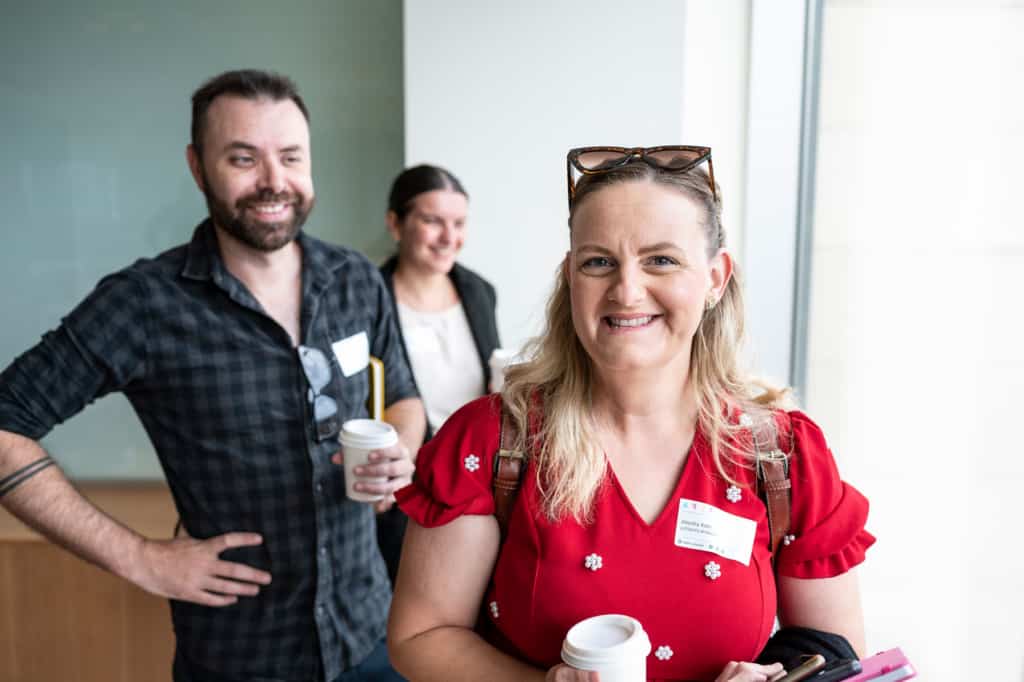
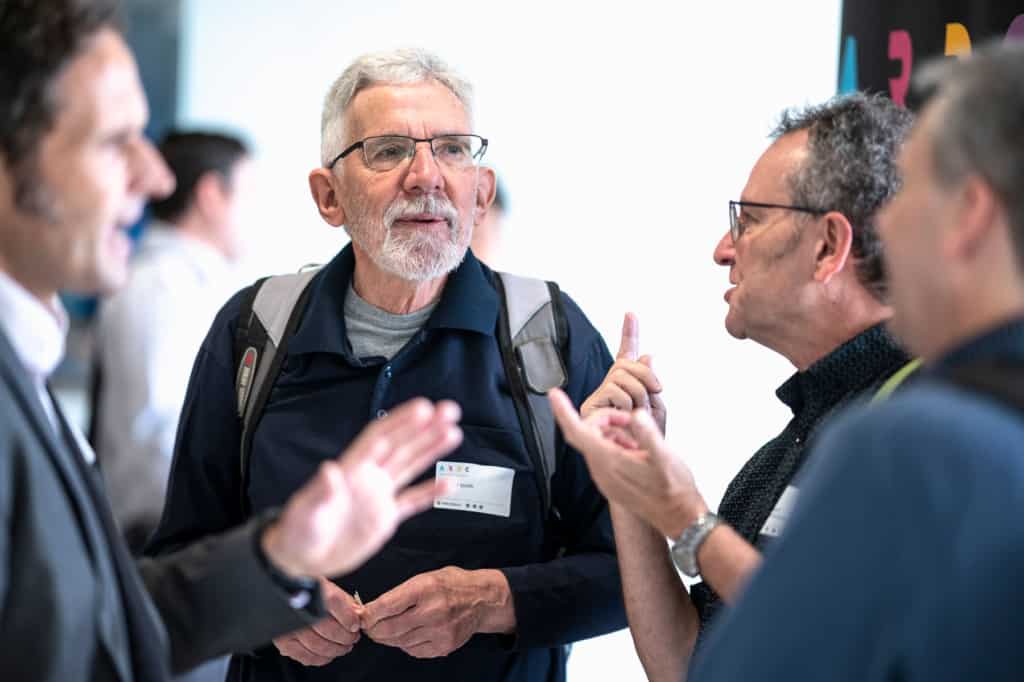
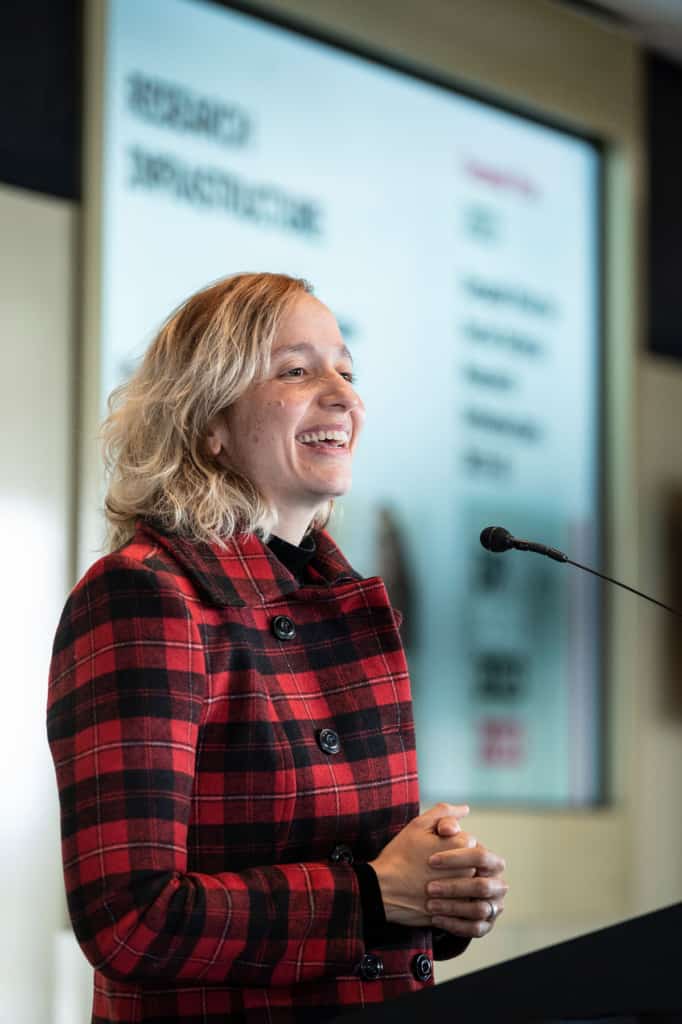
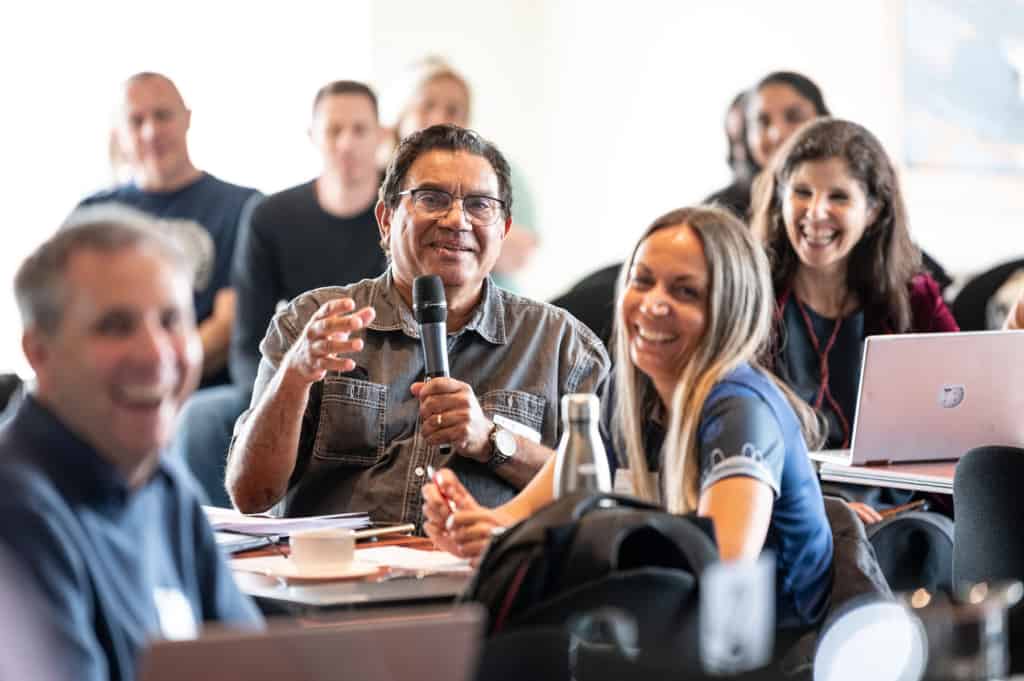
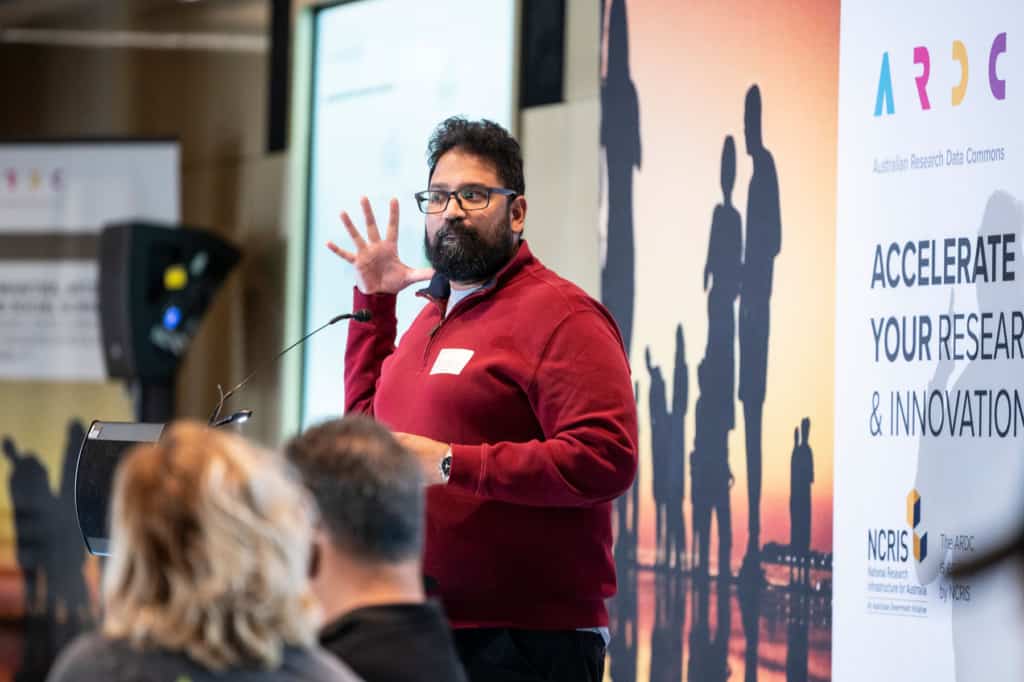
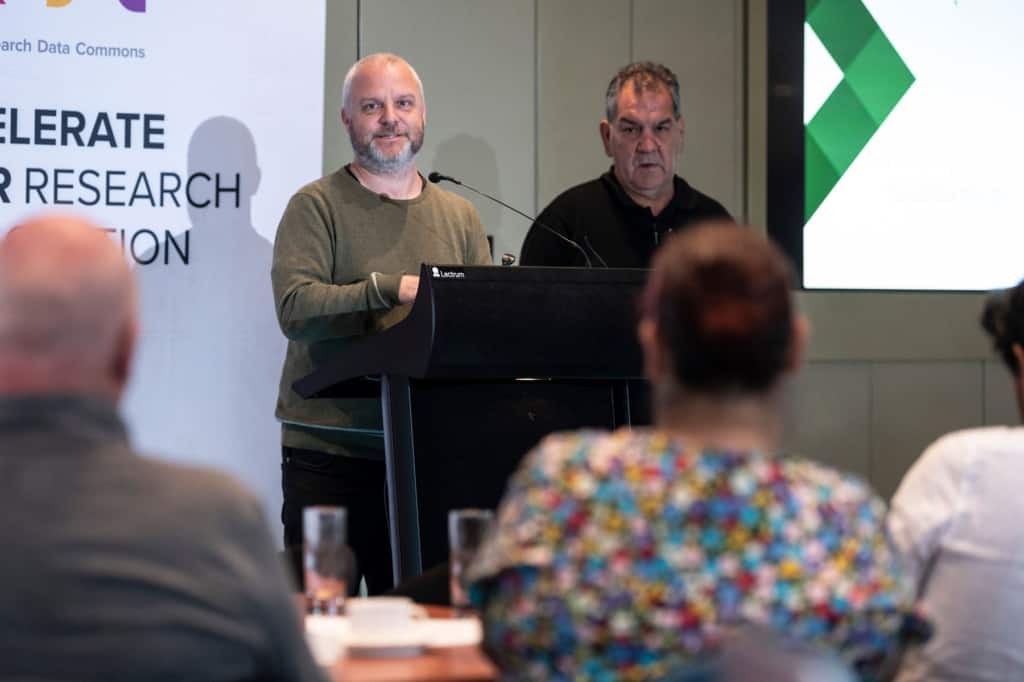
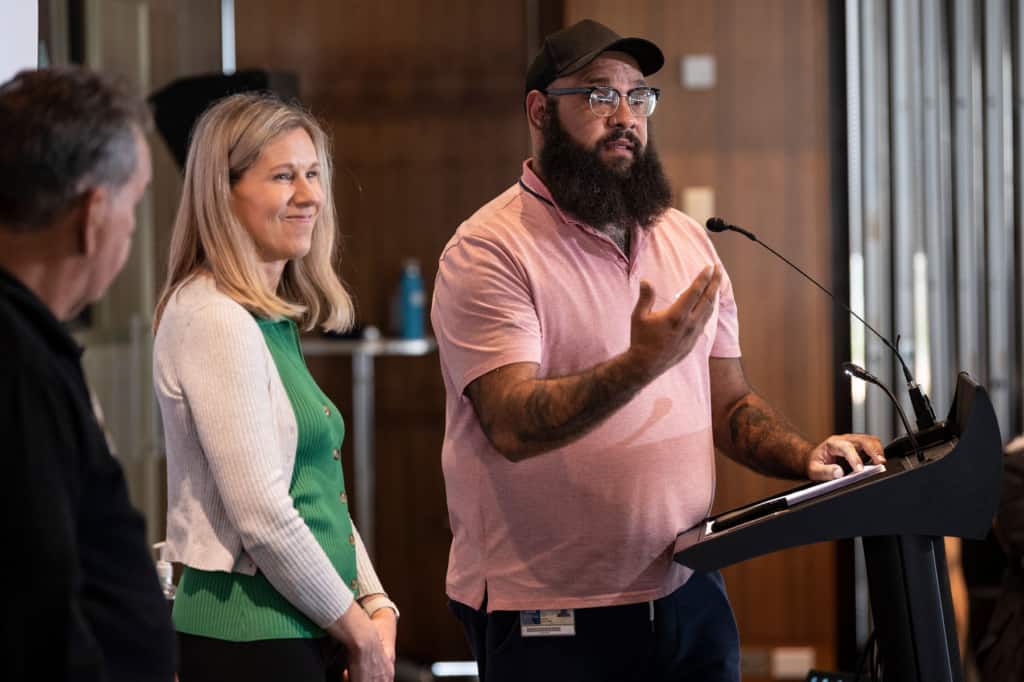
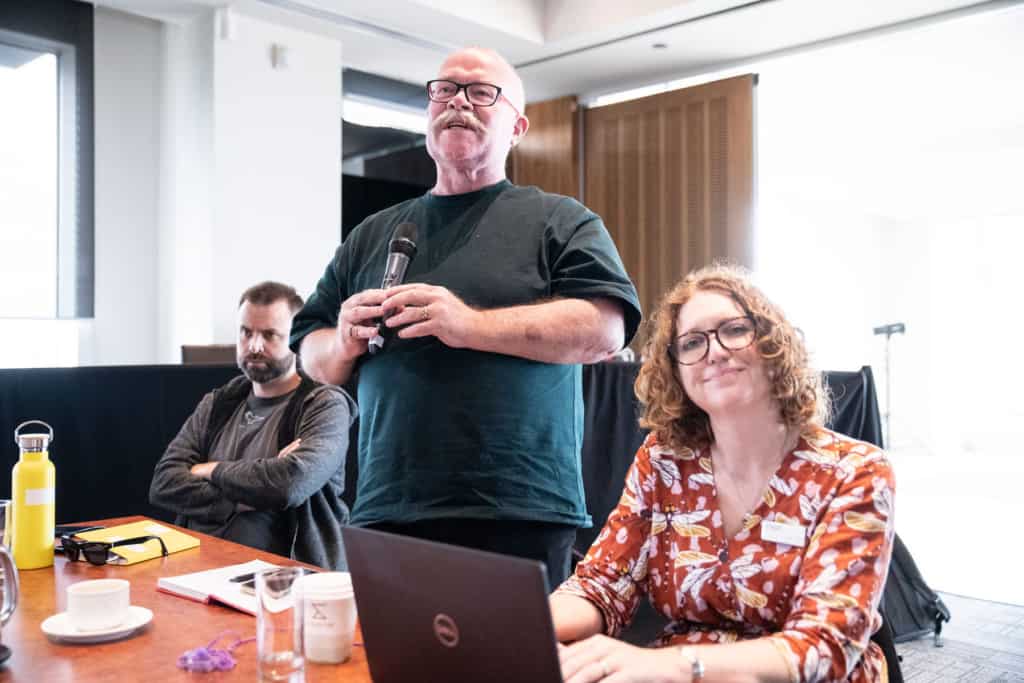
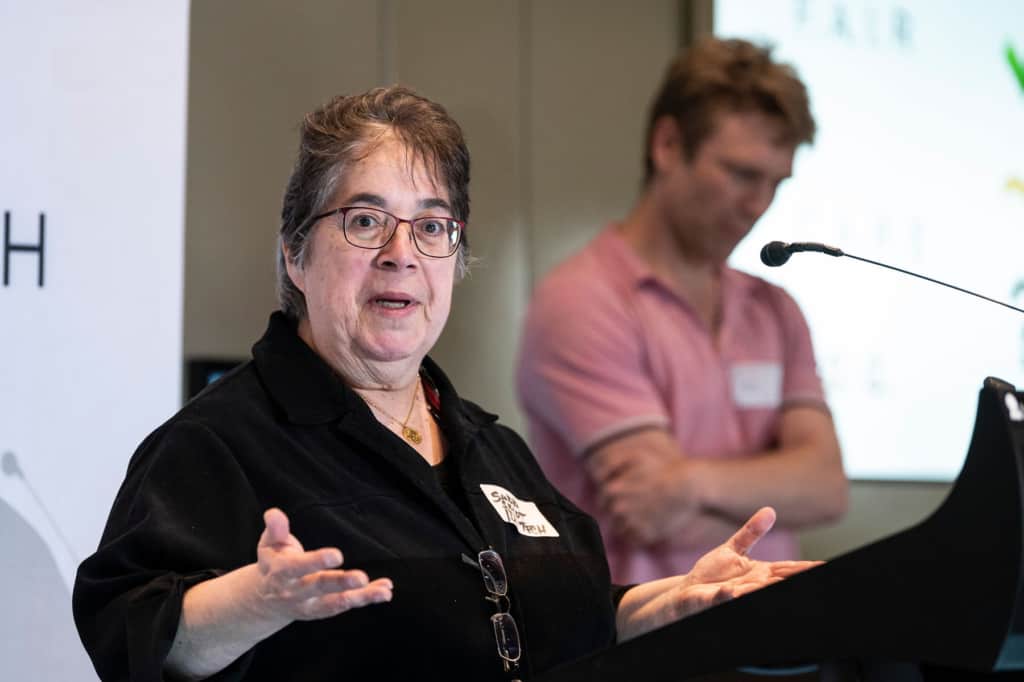
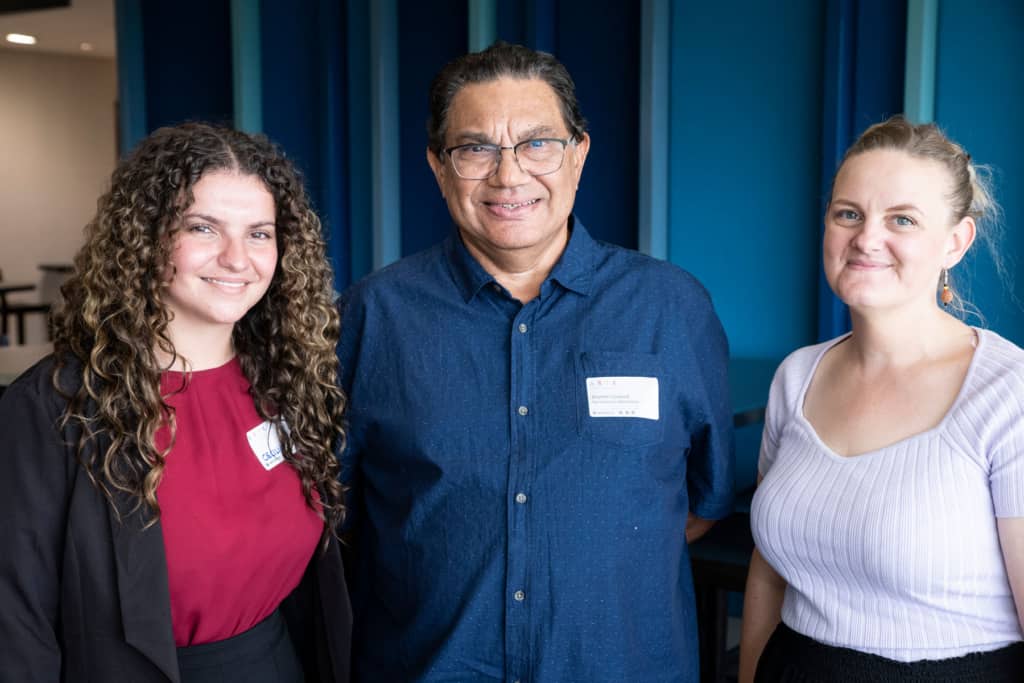
For more detail on the symposium, please:
- Watch the video and download the slides from Day 1.
- Watch the video and download the slides from Day 2.
To keep up to date with the HASS RDC and Indigenous Research Capability, register your interest.
The ARDC is funded through the National Collaborative Research Infrastructure Strategy (NCRIS) to support national digital research infrastructure for Australian researchers.
Author
Reviewed by
Categories
Research Topic
Related Projects
- Improving Indigenous Research Capabilities
- Integrated Research Infrastructure for the Social Sciences (IRISS)
- Language Data Commons of Australia (LDaCA)
- ARDC Community Data Lab
- Trove Enhancements
- Australian Text Analytics Platform (ATAP)
- Time-Layered Cultural Map (TLCMap) 2.0
- Gazetteer of Historical Australian Places (GHAP)
- Transforming the Online Heritage Resource Management Tool to Describo Collections
Related News & Events
- End of Year Update on the HASS Research Data Commons and Indigenous Research Capability Program
- “Bringing Data to Life: Co-Designing a Language Data Commons” Recap
- Empowering HASS and Indigenous Researchers with Essential Computational Skills
- Implementing Indigenous Data Licensing and Access: Empowering Communities and Upholding Cultural Rights
- HASS and Indigenous Research Data Commons Receives $25 Million



